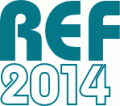People and Organisations

We are a diverse group of academics who research many aspects of work and organisations.
These can be broadly understood as centring on organisation studies and organisational psychology; and management and organisational learning, processes, change and innovation. Members of the department also have an interest in academic practices like research ethics and the politics of knowledge production.
Research into Employment and Equitable Futures
We seek to explore and shape the future direction of equitable futures, work and society with dedicated research into this area. In partnership with The People Space, this academic centre of excellence draws on the Department for People and Organisations' scholarly expertise on themes of identity, leadership, gender, bodies, ethics, power and learning to inform policy makers, organisational leaders, social practitioners and people from across contexts to work together to co-create innovative solutions for meeting these coming opportunities and challenges.
Gendered Organisational Practice
This research cluster takes feminist solidarity as a starting point to create a space where feminists of any gender can share insights and knowledge from academic study and practice. The cluster fosters continuous collaboration and exchange between practitioners and academics and provides a hub for those interested in developing equality through their research, but also for practitioners wanting to make their organisations more egalitarian and fairer places. Current areas of expertise include gendered working bodies, feminist organising and gender and sexuality.
Research interests
Organisation studies and organisational psychology
- Alternative organisations and organising
- Civil society organisations
- Corporate social responsibility
- Critical approaches to leadership and leadership dilemma
- Critical management studies
- Diversity in organisations
- Emotions in organisations
- Employee branding
- Financialisation and political and ethical responses
- Gender, sexuality, the body in organisations and how bodies are organised
- Human-animal relations in organisations
- Individual and group behaviour in organisational contexts
- The interplay between work and health
- Organisational democratic practice
- Organisational and individual identity, subjectivity, selfhood and the meaning of work
- Organisations, work and social inclusion
- Post-colonial relations in organisations
- Power, politics and organisations
- Professional occupations
- Precarious work
- The production, dissemination and contestation of meaning in organisations
- The psychology of financial behaviour
- Risk, uncertainty, and resilience
- Sociological accounts of work
- Transformations in technological and institutional conditions
Management and organisational learning, processes, change and innovation
- Change management
- Cross-cultural differences and self and group regulation in online learning
-
Collective organising and social learning processes
-
Decision-making under radical uncertainty
-
The development of business and management practices
-
Entrepreneurship
-
Formal and informal learning in organisations
-
Green HRM
-
Higher education management
-
Knowledge management
-
Management Information Systems
-
Managing inter-organisational relations in complex services
-
Management practices
-
Operations management
-
Serious games and the contribution of gamification to organisational learning and innovation
-
Strategic change
-
Supply chain management and behaviour
-
Supply chain analytics and modelling
-
Supply chain performance measurement systems
-
Sustainability and resilience in the supply chain
Academic practices
- Embodiment and affect in research
- The politics of academic knowledge production
- Research ethics
- Research methods
Academic Publications
Full details of our research publications can be found on Open Research Online and via our staff pages.
Teaching
Members of the Department teach across undergraduate, postgraduate and executive education modules in areas such as organisational behaviour, management of learning and change, professional development, human resource management, creativity, leadership, innovation, organisational culture and organisational development. We also run the CIPD accredited MSc in Human Resource Management.
Contact the Department for People and Organisations
For all department-related enquiries, please email us.
For all other enquiries, including student and alumni, please visit our contact us page.
HR needs to listen well and talk louder
Has the HR function changed? The HR professionals I talk to, and perhaps most importantly, the students working towards a career in HR, still seem to struggle with a ‘caught in the middle’ positioning between employees and employers.
The machine that is still changing the world
The automotive sector is not only continuing to adapt and improve itself, but through the adaptation and spread of its techniques to manage operations more effectively in other sectors, it is also continuing to change the world. Dr Paul Walley, Lecturer in Operations Management at The Open University Business School, explains.
What you need to be an effective leader
Leadership is widely regarded as important and, if you want to develop a career in any organisation, you will certainly be expected to develop and demonstrate leadership skills. Unfortunately, there is much less unanimity about what constitutes good leadership, although many have tried to answer this important question.

The OU combines open access with research excellence
The Open University’s results in the Research Excellence Framework (REF) demonstrate world leading research excellence in many of its subjects.
Methods of Mobilizing Clinical Engagement and Clinical Leadership by Clinical Commissioning Groups
This research project is designed to examine the variety of ways and the extent to which CCGs address the challenge of engaging clinicians and deploying clinical leadership in the redesign of services. We are in search of effective practice. In particular, it will assess the extent to which these efforts lead to successful inroads into the achievement of integrated care which cuts across legacy boundaries.
News

How to design menopause leave policies that really support women in the workplace
More than 15 million women are in employment in the UK right now, which means menopause is undoubtedly a workplace issue. In this article, Jo Brewis, Professor of People and Organisations writes about how to design menopause leave policies that really support women in the workplace.
- How to design menopause leave policies that really support women in the workplace
- Learning different ways to do HR in different organisations and countries
- The rise and fall of Topshop. OU/BBC series lifts the lid on iconic brand’s fall from grace
- Small bakery owners: we want your views!
- Self-employment: what is it, why do it and how has the pandemic affected it?
